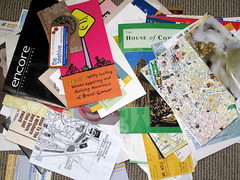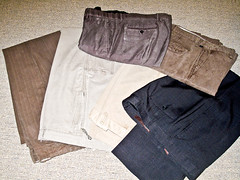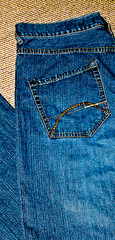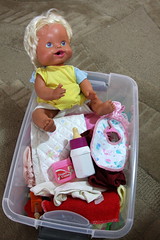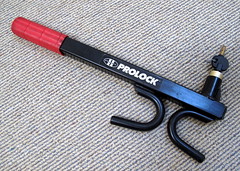Happiness Goal
I make a lot of suggestions and give a lot of advice on deciding what may or may not be clutter in your homes. However, ultimately your decisions are your own because no one knows better than you as to what you consider clutter in your home and what you don’t. No matter what the choices, everyone’s ultimate goal when it comes to minimising their possessions is, and should, be their happiness.
What you are happy to get rid of and what level of minimising is entirely up to you. Quite often these goal post move as time wears on, and that is fabulous, but the end result should be what you are happy with, or a happy medium between you and the other occupants of your dwelling place.
Sometimes the decision making may be a cause of discontentment, procrastination or soul searching. However don’t let that deter you, because in the end, it is a rare occasion when seeing the stuff go out the door causes anything other than delight. Anything that is too difficult to decide on can be put aside while more decluttering goes on around it. With decluttering experience comes decluttering ruthlessness so the decision making does get easier.
I have gotten happier and happier with my surroundings as more and more goes out the door. I do a little happy dance with every package I send off to an eBay auction winner. Driving a car load of donations to the thrift shop is also a joyful experience for me and it ultimately benefits others. And things offered to and accepted by my children pleases me because we both benefit from the exchange. Of course they are always told they are under no obligation to accept nor keep the items, should they, at some point, no longer want them.
So be happy with the process of decluttering, delight in your progress, and be happy with the end result.
It matters not how fast I go, I hurry faster when I’m slow


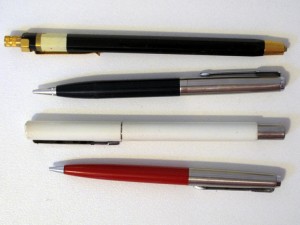
 The Overspent American: Upscaling, Downshifting, and the New Consumer by Juliet B. Schor was published in 1998, but the information seems as relevant today as it did more than a decade ago. The book is geared toward middle and upper-income families, who seem to be caught up in a never-ending cycle of keeping up with the Joneses, no matter who the Joneses are.
The Overspent American: Upscaling, Downshifting, and the New Consumer by Juliet B. Schor was published in 1998, but the information seems as relevant today as it did more than a decade ago. The book is geared toward middle and upper-income families, who seem to be caught up in a never-ending cycle of keeping up with the Joneses, no matter who the Joneses are.
